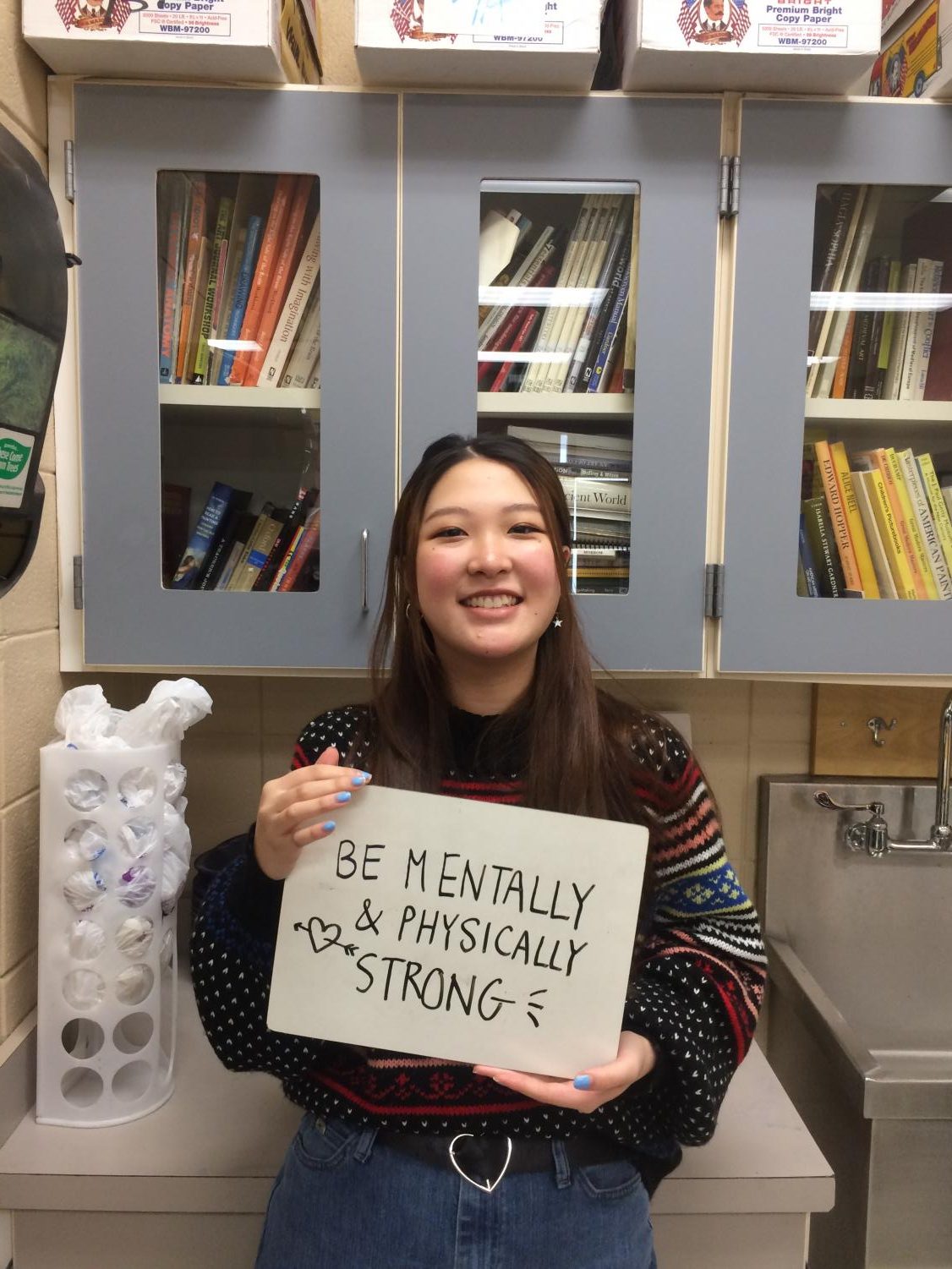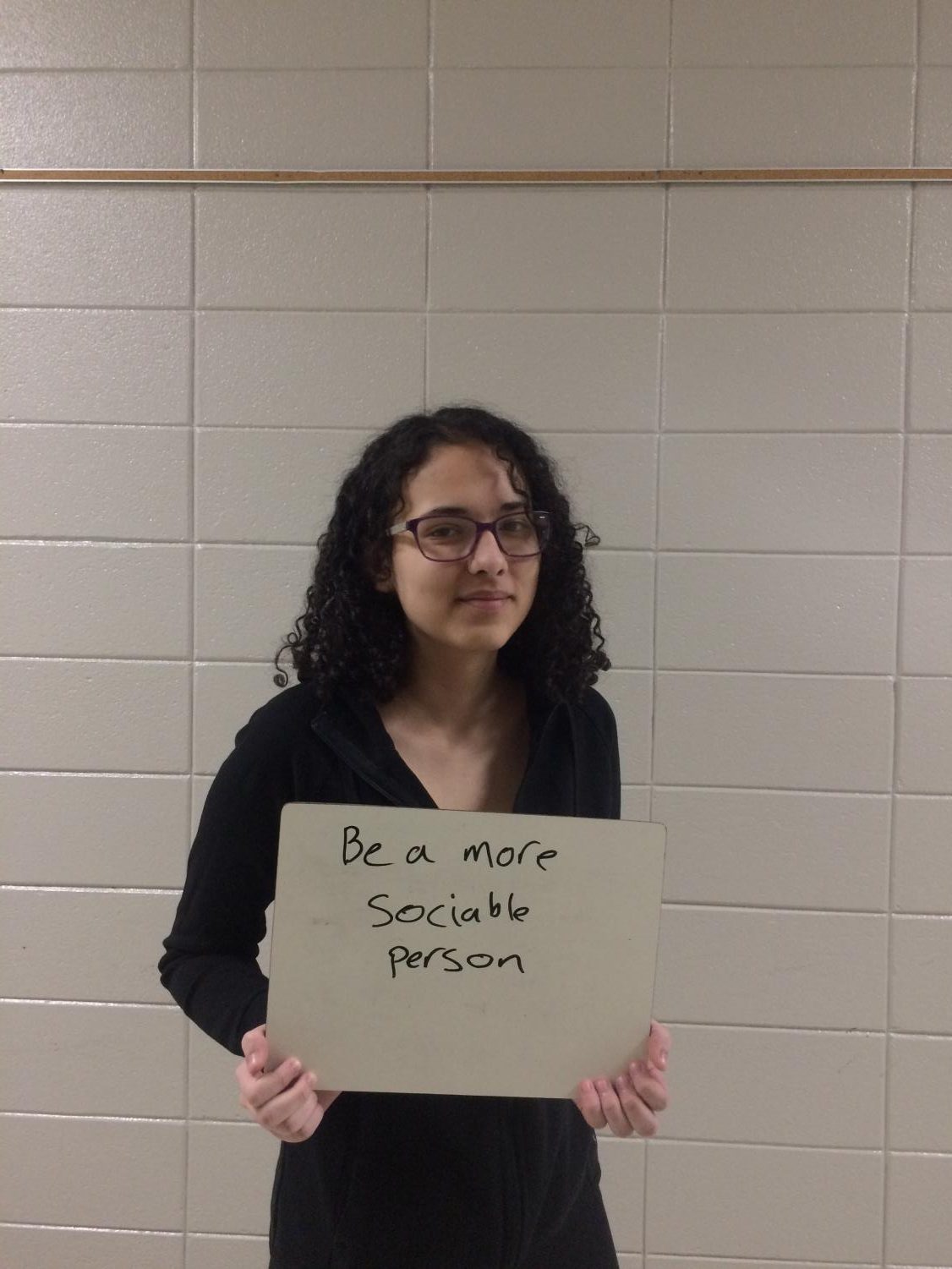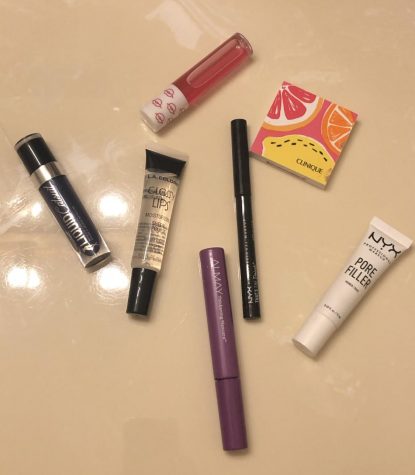New Year, New You!
A Guide to Resolutions
“New year, new me!” Everyone is familiar with the phrase. With the New Year comes renewed promises and mental fortitude all around as people consider the New Year a clean slate and an opportunity to invigorate their lifelong goals.
As the New Year novelty fades out and February transitions into March, resolutions take the back burner in the minds of those who fall back into their school and work routines. Making resolutions can be draining, especially when it comes to rewriting the same few goals that haven’t changed in a few years. But they are attainable for those who are serious.
On the other hand, resolutions are tough on insincere goals. “In the past, I didn’t have success with my resolutions. The resolutions I previously made were too general and did not allow for any tracking of progress,” commented Junior Matt Sung. He continued on to say that his unrealistic resolutions, like getting more sleep, often fell out of his mind.
Making resolutions is more about stamina and discipline than mental commitment. According to a study done by the European Journal of Social Psychology, it is difficult to break any habit even when motivated to do so.
“One hundred percent, it is easier to make habits rather than break them, and it has been scientifically proven,” stated Sung. “The constant repetition of a certain action is ingrained into your head and mind, and for you to recognize that habit and try to make a change, it is pretty difficult to break those habits.
Sung continued, “A book I’m reading called The Power of Habit mentions that habits form because the brain is always looking for new ways to remember and save efforts and routines, which leads to constant habits.” This reinforces the idea that it is easier to introduce new routines than forget about old ones.
The way you act has been repeated thousands of times, and it has become a routine for you. You are conditioned to be a certain way. And that is the challenge: to change your normal reactions, to change your routine, to take a risk and make different choices.
— Don Miguel Ruiz, Mexican author of Toltec spiritualist and Neoshamanic texts
Since writing New Year’s resolutions may simply be a tradition for many students, the resolutions may not be sincere, which in turn leads to old habits returning.
“I think it’s just with the new year coming in, everyone is posting and talking about their changes,” explained Sophomore Carmen Lloyd. “After a couple of weeks, the motivation to do them wears out.”
She continued, “I don’t think [people] realize how hard it is to actually stay motivated and committed.”
The quickest way to conquering resolutions is to work smarter, not harder. And the best way to work smarter is proactivity. Proactivity is defined as anticipatory, change-oriented, and self-initiated behavior in situations. Simply put, this is the decision to actively chase resolutions instead of letting the days pass by.
The first step to becoming more proactive is to limit the resolutions to short-term, realistic steps. Prioritizing short-term goals will lead to milestones, and soon the gap in front of long-term goals will be small. In addition, small-term goals bring satisfaction and motivation that serve as momentum for the next objective.
“Setting mini-goals for myself really helps,” noted Lloyd. “It keeps me motivated and having shorter goals allows me to feel like I’m actually accomplishing something rather than ultimately just looking at the long-term one.”
Specific examples of breaking down the more complicated goals would look like setting time limits on electronic time to gain sleeping time, or spending an hour each evening reading a book in order to finish it.
Another tip is to stay focused on solutions, not problems. Focusing on the problem and all of its negative outcomes will only bring stress and lead to blaming oneself or others.
The last and most important tip of all is to understand that every journey has its ups and downs, and the path toward achieving resolutions will come with its obstacles. It’s okay to take breaks and shift priorities from time to time, but make sure to always come back.
“It does get really difficult at times,” said Lloyd, “but you have to look into the future. Think about how life changing your goal will be, big or small. Every day counts.”
Long Reach’s Resolutions
- Junior Michelle Caternor: Better myself mentally as well as start taking care of my physical body.
- Senior Baheera Mariska: Drink more water and spend as much time with my family and friends
- Senior Nareena Alzaben: Start working and also applying to scholarships
- Sophomore Jessica Ruano: Some goals I have for this year are to become better at soccer through practice. I also want to continue to do well in school in order to be successful.
- Senior Kacey Hargest: My resolution is to be a more positive and compassionate person. I hope that throughout this year I am able to strengthen myself and become more selfless.
- Freshman Reagan Burfeind: A goal I definitely want to reach by the end of this year is to eat healthier and try new foods.
- Junior Tori Ely: My resolution is to stand up for myself more!!
- Senior JiYoung Park: This year I’d like to focus on my mental and physical health. My goals include eating healthier foods, exercising on a regular basis, and giving myself a break when I need it.
- Senior Dhruvit Patel: Focus on self improvement and drink more water.
- Junior Indyia Haskett: This year I want it to be a year of pure growth in all fields– mentally, physically, et cetera. I want it all and all the hard work it comes with.
Quick Ways to Change Your Life
- Wake up early. The early morning hours are an optimal time to exercise, study, read a book, or anything else– work related or hobby. When paired with a good night’s sleep, the peace and darkness outside are relaxing to the human mind and a great way to start the day.
- Be punctual. Set all clocks 5-15 minutes ahead of the actual time, and try to arrive everywhere 10 minutes before scheduled. Punctuality will emulate respect, professionalism, and credibility.
- Write in a journal. This is a healthy way to release the stress of emotions and prevent it from building up over time, as well as clear the mind before sleeping. Additionally, keeping a gratitude journal will increase optimism and shift the focus from the negatives to the positives.
- Pick up a new hobby– or three. One popular phrase reads, “Find three hobbies you love: one to make you money, one to keep you in shape, and one to be creative.” This will take time out of any current schedule, but it beats surfing the internet or scrolling through social media for hours!
















![Photo Courtesy of
A teen faces colorism at school and at home in Genesis Begins Again
[Photograph]. (n.d.). NPR.https://www.npr.org/2019/01/31/690381040/a-teen-faces-colorism-at-school-and-at-home-in-genesis-begins-again
A complex-ion issue: Colorism [Photograph]. (n.d.). The Chronicle. https://hwchronicle.com/55860/features/a-complex-ion-issue-colorism/
The colorism issue [Photograph]. (n.d.). Issuu. https://issuu.com/overachievermagazine/docs/colourism
_issue_om](https://lrhslightningflash.com/wp-content/uploads/2021/06/Colorism-is-alive-475x380.jpg)
![Long Reach Boosters Club. (March 24, 2023 - 11:33pm). [Digital Image]. Long Reach Has Talent Show Spring 2023. Facebook, Retrieved April 17, 2023 from https://www.facebook.com/longreachboosters/posts/pfbid03kN5BKQj5TDefz1rtVZ5fTBBhjwA39UPPd8GctyMgFvY7B4RihH4rY4EqE7xPwikl.](https://lrhslightningflash.com/wp-content/uploads/2023/05/LR-Talent-Show-3-475x316.jpg)




![Getty Images.[Busy boardwalk during sunset] [Photograph]. How to See Ocean City Like a Local. Melanie Wynne. Retrieved March 15, 2022 from https://traveler.marriott.com/couples-and-family/how-to-see-ocean-city-md-like-a-local/](https://lrhslightningflash.com/wp-content/uploads/2022/05/GI_532547393_OC_Boardwalk-475x238.jpg)


